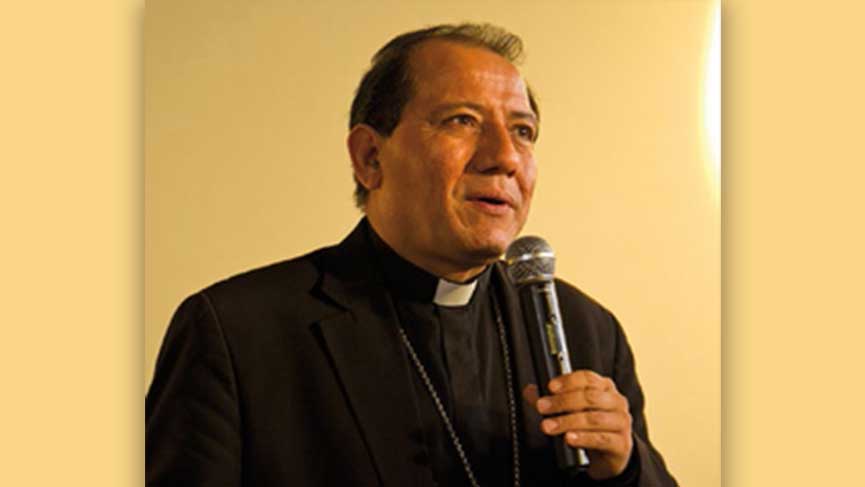Open letter to delegates attending the PDAC 2022 Convention

International
June 8, 2022 - Our warmest greeting from Peru to the delegates attending the PDAC 2022 Convention.
As an important host country welcoming investment in our mining sector, particularly from Canadian sources, Peru saw our 2021 mining investment numbers climb, in spite of the pandemic, by 21.1% over the previous year1. Peru’s mining sector is central to its economy, and Canadian investment represents a 15.3% share of that sector2.
Regrettably, investment policies have not yielded the improved quality of life that had been promised to communities in the mining regions. On the contrary, those policies have allowed corruption to flourish, while the environment has been polluted and the right to life and health violated, unleashing social unrest and causing disease and even death. The rights of Indigenous and farming communities to participate in consultations prior to mining projects have not been respected, despite the fact that these rights are enshrined in international treaties signed by Peru and have been adopted into our national legislation. Mining companies too often begin exploring in fragile environments at locations upstream of watercourses, without having conducted adequate prior consultation with local communities who are dependent on the water and soil for their agricultural livelihoods. This gives rise to serious conflicts involving the companies, their workers, and the affected communities who are attempting to protect their means of survival. The causes of these conflicts are not understood by the companies and are disregarded by the government, which fails to fulfil its role as protector of its citizens’ rights.
One report, dated April 2022 and released by the Office of the Ombudsman of Peru (a government body responsible for the protection of human rights), indicates that, out of 209 reported instances of social unrest, 63.2% were socio-economic in nature, while 65.9% of these were related to the mining sector3. Between 2004 and 2019, these socio-environmental conflicts claimed the lives of 48 people4; nevertheless, the majority of those responsible for these deaths were acquitted.
The ineffectiveness of our institutions and the lack of environmental regulation by the government have allowed numerous mining companies to pollute the air, the water and the soil of communities living near their operations, poisoning thousands of Peruvians with toxic metals5. Those affected by these toxic metals become immuno-depressed and are consequently more vulnerable to diseases, including COVID-19. They must then fight with the government to obtain the specialized treatment guaranteed to them under the Constitution.
The government’s failure to live up to its responsibilities and adequately regulate mining companies is partly due to the major influence exerted on both executive and legislative government bodies by powerful industry lobbies. These interests continually undermine regulatory frameworks, controls and sanctions intended to protect the environment, instead promoting public policies that are more favourable to the mining sector. Lobby groups have even succeeded in influencing the appointment of officials to oversee regulations, flouting citizens’ rights to life, health and a healthy environment. This has especially impacted Indigenous communities, dispossessing them of ancestral lands, misrepresenting advance consultations with them and compromising their very existence. The issue has been well articulated by Cardinal Pedro Barreto, Archbishop of Huancayo, a region seriously impacted by mining and metallurgical operations. At a hearing before the Inter-American Commission on Human Rights, Archbishop Barreto stated, “Our goal at this hearing is to provide testimony to the anguish and suffering of so many of our sisters and brothers as a result of increasingly destructive and dangerous mining activities being carried out with no human face and no ethical consideration6.”
Many of the countries that are home to these international mining companies are prepared to legislate requirements for due diligence, but it has been our observation that Peru’s business community has no interest in such laws. In Peru, we at the CEAS (Episcopal commission for social action) took part in the United Nations-led project to develop a national action plan for businesses and human rights, in order to ensure that standards for human rights and the environment are respected; business interests, however, are desperately trying to resist the implementation of these standards. We therefore believe it is of the utmost importance that countries move away from voluntary compliance arrangements and adopt legally binding instruments governing transnational corporations and human rights, as proposed by the United Nations Human Rights Council7.
Given the weakness of Peru’s institutions and the ineffectiveness of their regulations, it is up to the countries of origin of companies operating in Peru, including Canada, to establish criteria of due diligence that will be respected by these interests. The countries in question should regulate their companies’ operations, implementing mechanisms for filing complaints in order to prevent violations that will impact community lands, endangering Indigenous peoples and threatening them with extinction.
We are familiar with the Canadian Parliament’s Bill C-262, requiring companies to exercise due diligence with respect to human rights and the environment before undertaking operations in other countries8. We welcome this initiative with faith and hope. We ask that the Canadian mining industry also support this Bill which is in compliance with the PDAC e3 Plus framework for responsible mineral exploration9.
We are united with the bishops of Latin America in calling on “business leaders, investors and governments to examine the entire scope of economic activities based on extractivism and ensure that the sustainability of life and the land, including its inhabitants, should take precedence over any financial interest10.” We also invite you to share the vision of Pope Francis, who said, “Business is a noble vocation, directed to producing wealth and improving our world11.”
In brotherly love,
Msgr. Jorge Izaguirre Rafael, CSC
Bishop of Chuquibamba
President, CEAS
1https://www.minem.gob.pe/minem/archivos/file/Mineria/PUBLICACIONES/ VARIABLES/2021/BEM12-2021.pdf – in Spanish
2https://www.rumbominero.com/peru/noticias/mineria/canada-mineria-peru-expomina/ – in Spanish
3https://www.defensoria.gob.pe/wp-content/uploads/2022/05/Reporte-Mensual-de-Conflictos-Sociales-n.%C2%BA-218-%E2%80%93-
abril-2022.pdf (in Spanish)
4 https://convoca.pe/agenda-propia/familias-de-48-peruanos-muertos-en-conflictos-mineros-desde-2004-aun-no-encuentran – in Spanish
5https://www.amnesty.org/fr/latest/news/2020/06/peru-women-unite-against-toxic-metals-pollution/
6https://muqui.org/noticias/muqui-informa/cardenal-pedro-barreto-y-su-apuesta-por-una-pastoral-ecologica-en-peru/ – in Spanish
7https://www.business-humanrights.org/en/big-issues/binding-treaty/8 https://www.parl.ca/LegisInfo/fr/projet-de-loi/44-1/c-262
8 https://www.parl.ca/LegisInfo/en/bill/44-1/c-262
9https://www.pdac.ca/priorities/responsible-exploration/e3-plus/principles
10 Pastoral letter from the Episcopal Council of Latin America (CELAM) – in Spanish
https://iglesiasymineria.org/wp-content/uploads/2018/03/CARTA-PASTORAL-CELAM-2018.pdf
11 Laudato si’ (129)

Comment
Comment
Add new comment